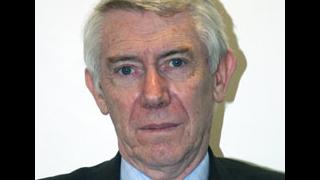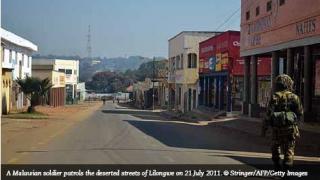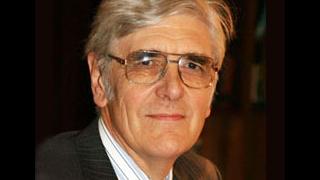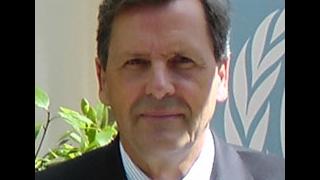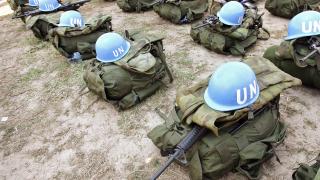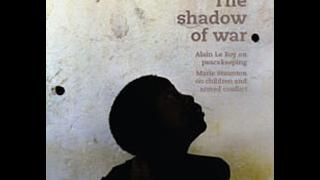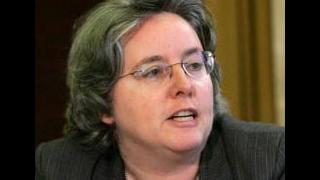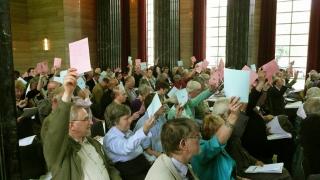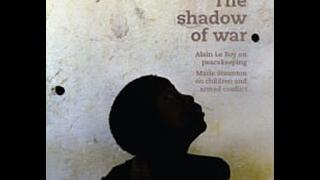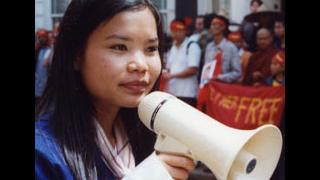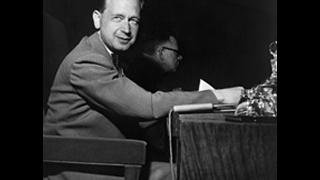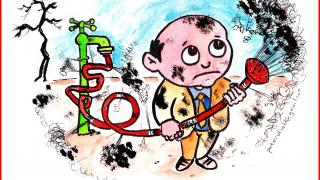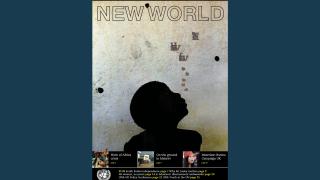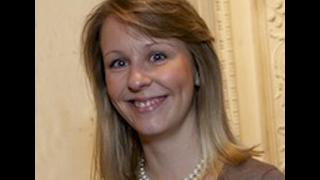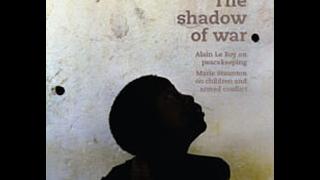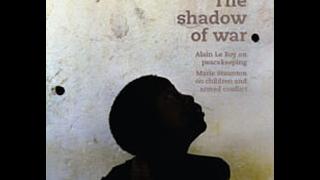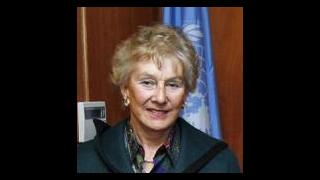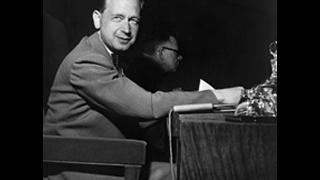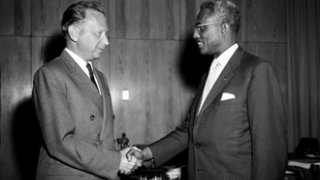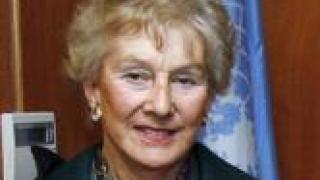
During my long career with the United Nations I worked under six Secretaries-General: Trygvie Lie, Dag Hammarskjöld, U Thant, Kurt Waldheim, Javier Perez de Cuéllar and Boutros Boutros-Ghali. I knew the last three of these much better because by that time I was first an Assistant-Secretary-General and then Under- Secretary-General.
When Hammarskjöld held the post I was young and out in the field as a Resident Representative, the first woman to head a mission of economic and social development in a developing country. So I was far from the centre of power but nonetheless there is no doubt in my mind that Hammarskjöld was the best Secretary-General that the United Nations ever had.
I did once encounter the great man when he made an official visit to Uruguay where I was then head of mission. The omens were not auspicious. A visit to another country had gone badly because our austere leader had objected to the reception hosted for him by my colleague as too pretentious. My instructions from New York were unequivocal: “Whatever you do, be inconspicuous! Don’t get involved in any of the organization; it will all be done directly between the SG’s office and the Uruguayan Permanent Representative in New York.” The SG’s office was blissfully unaware that Uruguay was a country which, at that time, considered protocol to be an affront to individual liberty and undemocratic while the Permanent Representative was a genial literary figure unaccustomed to any form of administration. Chaos soon broke out. The Foreign Minister called me in and warned me that neither he nor the President nor any other dignitary could meet the Secretary-General at the airport if he arrived as proposed on a Saturday, since Uruguay observed the “sabado ingles” [ the “English Saturday”] and a five day week. There could not even be a guard of honour since this would involve overtime and the budget was tight. The SG’s office was not amused by what they termed this “strange interpretation of the working week” but said he would come on a Saturday anyway.
His plane arrived early and there would have been no one at all to greet him had the Director-General of the airport not been a friend of mine who kept an increasingly frustrated pilot circling interminably on a clear sunny day with no other aircraft around until I got there and, needless to say, was anything but inconspicuous.
With characteristic ingenuity the Uruguayans had invented an entirely new protocol category of VIP “semi-incognito” for some weekend activities. These included a visit to an “estancia" where, when the jeep in which I was riding got stuck in the mud, the owner, with Hammarskjöld at his side in another jeep tried unsuccessfully to bulldoze my vehicle out with a head-on collision.. In the end I had to make an ignominious exit, climbing over the bonnet, while local journalists had a field day photographing my underwear.
Similar incidents during the rest of the visit, while Hammarskjöld remained aloof, his reactions undecipherable, left me almost in despair. The culminating event was a stag dinner given by the Foreign Minister on the last evening. I was following my boss at a respectful distance, trying to be unobtrusive, when one of the men in the receiving line exclaimed in stentorian tones “Ah! Mrs. Hammarskjöld I presume”. Things could hardly get worse.
Trying to retrieve the situation, I introduced the Secretary-General to the Minister of Health. Hammarskjöld waxed enthusiastic about some public health projects we had told him about earlier. Alas, I had forgotten that the Minister was deaf. After several reprises, during which the Minister fiddled ineffectually with his hearing aid, and finally took out a small screwdriver and began to dismantle it, Hammarskjöld, to my amazement, dissolved into helpless laughter and had to move away.
Next morning, he actually invited me to sit beside him in the car to the airport. With a quizzical look he asked “Did you say the gentleman you introduced me to last evening was the Minister of Health?” When I nervously acquiesced he laughed and said “Well I think he is himself in urgent need of medical attention, don’t you?” So the great man, normally so austere and unapproachable suddenly became human and showed a great sense of humour. And, against all the odds, I was told later by my immediate bosses in New York that he had come back with a favourable impression of what I had thought to be a catastrophic visit.
That encounter, while it left me with a lasting image of the human being behind the statesman, is not the main reason for my considering him to be the best Secretary-General ever. For me, his greatness resides in his crystal clear vision of the ideals that the United Nations and international civil servants should uphold and in the courageous manner in which he himself did so in the face of powerful member states who wished to have a more malleable Secretary-General. He banished the CIA from the UN building in New York where, during the McCarthy purge, they had been conducting intrusive investigations into the lives of international officials, and he stood up to pressures from both sides in the Cold War that he considered incompatible with the aims enshrined in the Charter. One of the last acts of his life was his historic speech at Oxford in which he set out the principles that should guide a truly international civil service.
Perhaps what he will be remembered for most is his vision in launching what has now become one of the most prominent arms of the organisation. The word “peacekeeping” does not appear anywhere in the UN Charter though it is implicit in its aims. Hammarskjöld had the vision and the imagination to translate the concept into action in the form of the first peacekeeping operations. He also articulated the philosophy that has guided these operations ever since: consent - the need to have the prior agreement of conflicting parties; impartiality - which is not the same as neutrality; and minimum use of force. And it was he who coined the pithy phrase: “It is not a soldier’s job but only a soldier can do it”.
I had cause to think often about those tenets when I was heading the ill-fated mission in Angola in the early 1990s - the first woman to head a UN military peacekeeping operation [ I wonder what he would have thought of that?] During the half century since Hammarskjöld’s tragic death the international situation and the nature of conflict have changed dramatically. The number of UN peacekeeping operations has increased beyond anything he could have envisaged and so has their complexity, now that the majority have to deal with internal, civil wars rather than interstate conflicts, and peacekeeping has to blend into peacebuilding if precarious peace settlements are to last.
I think that, with his intrinsic pragmatism, Hammarskjöld would have understood that missions now have to be multidisciplinary, encompassing many different disciplines, so that it is no longer true that “ only a soldier can do it”, important as the military role is to establish basic security. I also believe that he would have accepted that two of his three tenets have to be nuanced nowadays.
Consent cannot always be obtained when several warring factions are engaged in an internal conflict, especially when it is necessary to apply the principle of Responsibility to Protect (R2P), the recently adopted approach to prevent governments from maltreating their own people, with which I am sure he would agree. Security Council mandates for peacekeeping missions are now more often given under Chapter VII of the Charter rather than Chapter VI and the use of force may more frequently be needed given the mounting ferocity of the situations with which the UN has to deal. But impartiality remains the permanent lodestar by which the United Nations must always be guided.
When Hammarskjöld was Secretary-General the UN was young and so was I. The high principles he stood for seemed self evident then. In the succeeding years realpolitik, the persistence of national sovereignty and (often misguided) concepts of national interests, despite their increasing irrelevance in a globalised world, have dimmed the brilliance of Hammarskjöld’s vision but it remains the only sure path to the survival of humanity. He was a great man. We must hope to see his like again.
Dame Margaret Anstee DCMG was the first female UN Under-Secretary- General, and the first woman to head a UN peacekeeping mission (UNAVEM II in Angola).

